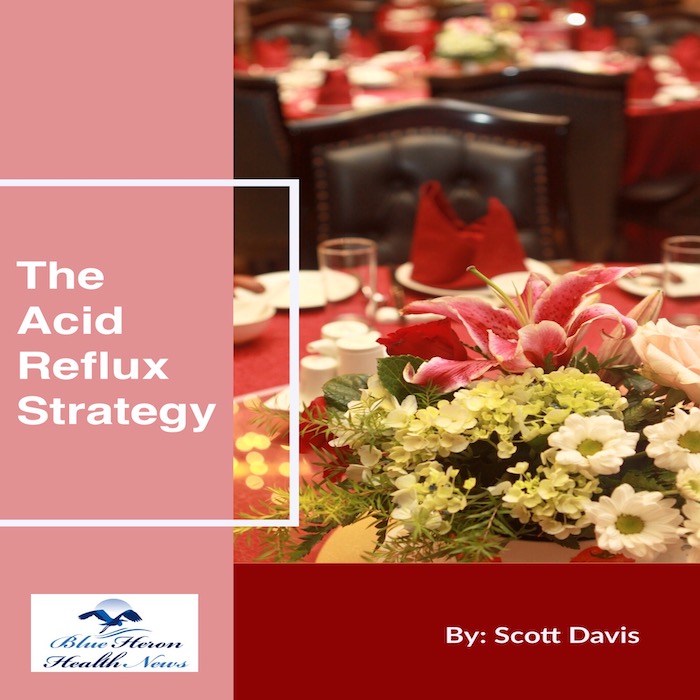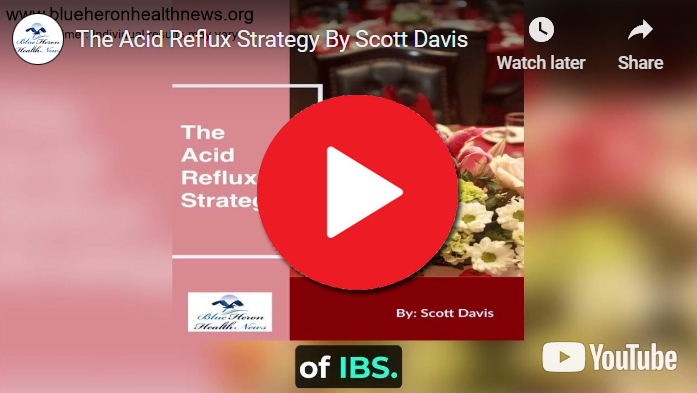
Acid Reflux Strategy™ By Scott Davis According to this eBook, you can start removing the symptoms of acid reflux and other similar problems just by making some changes in your diet, levels of stress, and lifestyle. It will guide you on how to change from the combination of food items to the sleep positions to relieve your problems. It also includes a list of food items you should focus on while shopping for it to find a natural treatment for your symptoms.
What is the difference between acid reflux and gastroesophageal reflux disease (GERD)?
Acid reflux and gastroesophageal reflux disease (GERD) are related conditions, but they are not identical. Understanding the difference between the two can help in identifying the severity and appropriate treatment of the symptoms. Here’s a breakdown of the distinctions between acid reflux and GERD:
Acid Reflux
Definition:
- Acid reflux occurs when stomach acid or bile flows back into the esophagus, the tube that connects the mouth to the stomach. This backflow is also known as acid regurgitation or gastroesophageal reflux.
Symptoms:
- The most common symptom of acid reflux is heartburn, a burning sensation in the chest that may extend to the throat. Other symptoms can include a sour or bitter taste in the mouth, regurgitation of food or sour liquid, and a sensation of a lump in the throat.
- These symptoms can vary in frequency and intensity and are often triggered by certain foods, lying down after eating, or other lifestyle factors.
Occasional Occurrence:
- Acid reflux can happen to anyone occasionally, often triggered by overeating, consuming certain foods or beverages, or stress. It is not necessarily indicative of a chronic condition if it happens infrequently and symptoms are mild.
Gastroesophageal Reflux Disease (GERD)
Definition:
- GERD is a chronic and more severe form of acid reflux. It is diagnosed when acid reflux occurs more frequently, typically more than twice a week, and causes significant discomfort or complications. GERD results from a failure of the lower esophageal sphincter (LES) to close properly, allowing stomach contents to escape into the esophagus.
Symptoms:
- GERD symptoms are similar to those of acid reflux but are more persistent and severe. These can include frequent heartburn, regurgitation of food or sour liquid, difficulty swallowing (dysphagia), chest pain, chronic cough, laryngitis, new or worsening asthma, and disrupted sleep.
- GERD can also cause symptoms that are less commonly associated with acid reflux, such as chronic sore throat, hoarseness, and a feeling of fullness or discomfort after eating.
Chronic Condition:
- GERD is considered a chronic condition that requires ongoing management to prevent complications. If left untreated, GERD can lead to more serious health issues, such as esophagitis (inflammation of the esophagus), esophageal strictures (narrowing of the esophagus), Barrett’s esophagus (a precancerous condition), and an increased risk of esophageal cancer.
Diagnosis and Treatment:
- GERD is diagnosed based on the frequency and severity of symptoms, as well as diagnostic tests such as endoscopy, pH monitoring, and esophageal manometry.
- Treatment for GERD often involves lifestyle changes, such as diet modifications, weight loss, and avoiding triggers, as well as medications like antacids, H2 receptor blockers, and proton pump inhibitors (PPIs). In some cases, surgical interventions may be considered if medication and lifestyle changes are not effective.
Key Differences
- Frequency and Severity:
- Acid Reflux: Occasional and usually mild; symptoms can be managed with over-the-counter medications and lifestyle changes.
- GERD: Chronic and more severe; requires ongoing medical management and possibly stronger medications or surgery.
- Complications:
- Acid Reflux: Generally does not lead to significant complications if infrequent.
- GERD: Can lead to complications like esophagitis, strictures, Barrett’s esophagus, and an increased risk of esophageal cancer if left untreated.
- Management:
- Acid Reflux: Managed with occasional use of antacids and lifestyle changes.
- GERD: Often requires more comprehensive treatment, including long-term use of medications, lifestyle changes, and potentially surgery.
Conclusion
Acid reflux and GERD are related conditions that involve the backflow of stomach acid into the esophagus, but they differ in frequency, severity, and potential complications. While occasional acid reflux can be managed with simple lifestyle changes and over-the-counter medications, GERD is a chronic condition that may require more intensive treatment to prevent serious complications. If you experience frequent or severe symptoms of acid reflux or suspect you may have GERD, it’s important to consult with a healthcare provider for an accurate diagnosis and appropriate management.
What are the risk factors for developing acid reflux?
Acid reflux, which occurs when stomach acid flows back into the esophagus, can be influenced by a variety of risk factors. Understanding these risk factors can help in managing the condition and preventing its onset. Here are the key risk factors for developing acid reflux:
1. Dietary Habits
- Spicy Foods: Consuming spicy foods can irritate the esophagus and increase the likelihood of acid reflux.
- Fatty Foods: High-fat meals can slow the stomach’s emptying process and relax the lower esophageal sphincter (LES), allowing acid to escape into the esophagus.
- Citrus Fruits and Juices: These foods are acidic and can aggravate symptoms.
- Tomato-Based Foods: Foods like pizza, pasta sauces, and salsas are acidic and can trigger reflux.
- Caffeine: Beverages like coffee, tea, and certain sodas can relax the LES and increase acid production.
- Chocolate: Contains both caffeine and theobromine, which can relax the LES.
- Carbonated Beverages: These can increase stomach pressure and the likelihood of acid reflux.
- Alcohol: Alcohol can relax the LES and irritate the esophageal lining.
2. Lifestyle Factors
- Obesity: Excess weight, especially around the abdomen, increases pressure on the stomach, pushing acid up into the esophagus.
- Smoking: Smoking relaxes the LES, increases acid production, and reduces saliva production, which normally helps neutralize acid.
- Lying Down After Eating: Lying down soon after a meal can make it easier for stomach acid to flow back into the esophagus.
- Overeating: Consuming large meals can increase stomach pressure and the risk of reflux.
3. Medical Conditions
- Hiatal Hernia: This condition occurs when the upper part of the stomach pushes through the diaphragm into the chest cavity, which can disrupt the functioning of the LES.
- Pregnancy: Hormonal changes during pregnancy can relax the LES, and the growing uterus can put pressure on the stomach, leading to acid reflux.
- Diabetes: Diabetes can cause gastroparesis, a condition that slows stomach emptying, increasing the risk of reflux.
- Delayed Gastric Emptying: Conditions that delay stomach emptying can increase the risk of acid reflux.
4. Medications
- Certain Pain Relievers: Nonsteroidal anti-inflammatory drugs (NSAIDs), such as aspirin and ibuprofen, can irritate the esophagus and cause acid reflux.
- Calcium Channel Blockers and Beta-Blockers: Used for high blood pressure, these medications can relax the LES.
- Anticholinergics: These medications, used for various conditions like urinary incontinence, can relax the LES.
- Benzodiazepines: Used to treat anxiety and insomnia, these medications can relax the LES.
- Antibiotics: Some antibiotics can cause or worsen reflux symptoms.
- Bisphosphonates: Used to treat osteoporosis, these can irritate the esophagus.
5. Genetics
- Family History: A family history of acid reflux or GERD can increase the likelihood of developing the condition, suggesting a genetic predisposition.
6. Age
- Older Age: The prevalence of acid reflux and GERD tends to increase with age, possibly due to a weakening of the LES and slower digestive processes.
7. Other Factors
- Rapid Eating: Eating too quickly can increase the risk of overeating and put pressure on the stomach, leading to reflux.
- Tight Clothing: Wearing tight belts or clothes can increase abdominal pressure and contribute to acid reflux.
- Stress: Stress does not directly cause acid reflux, but it can exacerbate symptoms by affecting digestion and increasing the perception of discomfort.
Conclusion
Understanding the risk factors for acid reflux can help in preventing and managing the condition. Lifestyle modifications, such as dietary changes, weight management, and avoiding triggers, are often effective strategies. If you are experiencing frequent or severe acid reflux symptoms, it’s important to consult with a healthcare provider for a proper diagnosis and treatment plan.
Acid Reflux Strategy™ By Scott Davis According to this eBook, you can start removing the symptoms of acid reflux and other similar problems just by making some changes in your diet, levels of stress, and lifestyle. It will guide you on how to change from the combination of food items to the sleep positions to relieve your problems. It also includes a list of food items you should focus on while shopping for it to find a natural treatment for your symptoms.
